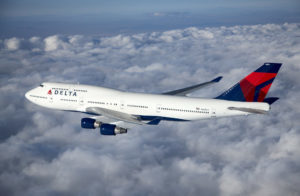
World Aviation Forum, ICAO, Shines Light on Economic Development
The spotlight on international air service was just illuminated. Yesterday, September 27, 2016, the International Civil Aviation Organization (ICAO) concluded the 2016 World Aviation Forum at the United Nation (UN) agency’s Montréal headquarters. ICAO’s President, Dr. Olumuyiwa Benard Aliu, affirmed ICAO’s mission noting “Air transport connects States to regional and global markets, which in turn enhances travel, tourism and trade.” ICAO is a specialized agency of the UN established in 1944 to manage the administration and governance of the Convention on International Civil Aviation (Chicago Convention). In 1994 a U.S. delegation (USA-BIAS) convened again in Chicago on the 50th anniversary to promote “open skies.” See: https://goo.gl/8qLhZ7 I’ll return to USA-BIAS below.
One primary takeaway this week was a call to accelerate the implementation of international civil aviation global standards and policies, plans and programs, in support of ICAO’s “No Country Left Behind Initiative.” The world has been embracing open skies as it actively engages in business to business negotiations (B2B). Less than one year ago more than 400 international delegates, from 80 member states, participated in B2B stakeholder meetings in Turkey to negotiate bilateral air service agreements. ICAO hosted the meetings in Turkey at which more than 500+ agreements and arrangements leading to improved air connectivity were reached. The Americas sent 13% of the delegates or about 52 participants. See: https://goo.gl/6A6WKA
 Bilateral negotiations in the U.S. remain very political despite the efforts of USA-BIAS initiated more than a decade ago by U.S. cities and their respective airport administrations. In July (2016), the U.S. Department of Transportation granted approval for American and Delta from Los Angeles, United from San Francisco, and Hawaiian from Honolulu to Japan’s closer-in Haneda Airport compared to Narita Airport. Only Delta was awarded a new route from the U.S., Minneapolis, to Haneda because it connected Japan to an unserved geographical area of the U.S. See Bloomberg: https://goo.gl/yW8huW
Bilateral negotiations in the U.S. remain very political despite the efforts of USA-BIAS initiated more than a decade ago by U.S. cities and their respective airport administrations. In July (2016), the U.S. Department of Transportation granted approval for American and Delta from Los Angeles, United from San Francisco, and Hawaiian from Honolulu to Japan’s closer-in Haneda Airport compared to Narita Airport. Only Delta was awarded a new route from the U.S., Minneapolis, to Haneda because it connected Japan to an unserved geographical area of the U.S. See Bloomberg: https://goo.gl/yW8huW
The award to Delta of the Minneapolis route was not greeted with enthusiasm by American Airlines. Not surprisingly, Dallas Fort Worth International Airport (DFW) advertised to hire in June (2016), just before the “Delta-Haneda” decision, a “Senior Government Relations Manager.” The stakes are high and coalitions of community leaders are demanding a bigger voice. The Port of Seattle which governs the seaport and SeaTac International Airport (SEA) just advertised in July (2016) to hire a Sr. Manager Federal and International Government Relations. San Jose International Airport (SJC) advertised in August (2016) for a Manager of Strategy and Policy (Airport), Sr. Executive Analyst. Hidden in SJC’s job description is “Legislative Affairs” from their doorstep to Washington, D.C. The list goes on.

So, where does air service fit in the economic development equation? The pendulum has not stopped swing between the gentrification of urban centers like Denver that has experienced unprecedented growth and a shortage of housing while companies like Google opened shop in nearby Boulder, CO. Quality of Life (QOL) is increasingly becoming important to millennials not along traditional grounds for cost of living and schools. Rather QOL factors influencing the new workforce includes a vibrant downtown, “access to beaches and mountains, and recreational opportunities to be the most important features” and access to international air service for the travel hungry generation. See Area Development: https://goo.gl/Kl5pD This is particularly true for knowledge-based industries that are more mobile.
Getting the community story line, pitch and linking local businesses with strategic international air service — through the open skies concept envisioned by USA-BIAS — is key. The presence of a feeder system, including industry clusters and universities, may ensure a skilled workforce is achievable in a high ranking QOL location. Airports and their governing bodies who are collaborating with diverse stakeholder in the region and states they serve will be best postured to lobby the US DOT and policymakers in Washington, D.C. There seems to be a growing trend for airports to hire the likes of a “Sr. Manager of Federal and International Government Relations” for good reason, to shepherd through a community’s request for new international route approval and/or to capitalize when new routes like Haneda, Japan or Havana, Cuba are competitively opened for service. What U.S. Cities will be joining the B2B bilateral negotiation forum this December, 2016 in Nassau, The Bahamas?

